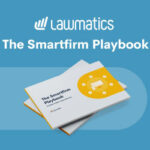
The 14th Amendment, Nixon, And China

(Photo by Brendan McDermid-Pool/Getty Images)
The United States Supreme Court will soon decide whether Donald Trump is eligible for the presidency despite his conduct on January 6, 2020. The conventional wisdom is that the staunchly conservative Supreme Court will not deny Trump the right to serve.
Not so fast.
A Democrat could not have gone to China in 1972. A Democrat would have been crucified for the act.
But Richard Nixon, a hard-liner, could go to China. The world could not doubt that he was a fervent anti-communist.
A Supreme Court with a majority of Democratic appointees could not rule that Donald Trump is ineligible for the presidency. That decision would be seen as terribly partisan; it would surely bring the Supreme Court into disrepute; it might lead to violence.
But a Supreme Court with a majority of Republican appointees could rule against Trump. That would be like Nixon going to China.
Perhaps the Supreme Court should consider this when it reviews the Colorado Supreme Court decision about Trump’s eligibility for office.
On the merits of Trump’s eligibility, reasonable people can differ. Professors William Baude and Michael Paulsen, both very conservative scholars, wrote the long law review article explaining why Trump is not eligible for the presidency. J. Michael Luttig, a prominent conservative, also believes that Trump is not eligible.
On the other hand, professor Samuel Moyn, a liberal scholar, says the reverse: The Supreme Court should hold that Trump is in fact eligible (although Moyn’s argument is based entirely on politics, not law).
These are smart people. They’re writing in good faith. And they’re each taking the opposite position from the one that you would expect; they’re arguing against their own political instincts.
It’s thus fair to say that the Supreme Court could in good faith rule either way on the merits of Trump’s eligibility.
If a Supreme Court with a Democratic majority were to rule that Trump is not eligible, that decision would feel terribly political (like Bush v. Gore after the 2000 election). Republicans might grab their pitchforks (or worse) and take to the streets.
But if the current Supreme Court, with a Republican majority, were to rule that Trump is not eligible, the reaction might be more muted.
More muted; not silent.
Trump would of course howl: Even though Trump appointed three of the sitting justices, he’d scream on social media that the court is filled with RINOs, never-Trumpers, and morons. But that’s just Trump being Trump. According to Trump, anyone who supports him is a wise and sagacious person; anyone who disagrees with him is scum. Trump’s shtick is starting to wear a little thin (at least for me).
Trump’s confidantes and sycophants would of course howl along with Trump: Those folks are paid to parrot whatever Trump says, or bound politically to Trump, so they’ll do as they’re told.
Trump’s base would howl: The base howls without thought at anything that Trump tells them to howl about.
But people susceptible to reasonable argument — Republicans who are on the fence about Trump, independents who are thinking about the issues — might be persuaded by a decision adverse to Trump handed down by a Supreme Court that should logically support him. Reasonable people might think the Supreme Court’s decision was based in law, rather than politics.
A decision rejecting Trump’s eligibility might do the country some good. For example, a decision adverse to Trump would surely restore some faith in the Supreme Court. People would view it as being slightly less partisan. (John Roberts: Are you listening? Surely you read Above the Law.)
A decision adverse to Trump might also reduce the temperature in the current presidential campaign: A polarizing person, Trump, would be taken off the ballot on the Republican side. And Joe Biden, who many Democrats think should not be their party’s nominee, might feel free to take his name out of contention. We might then have an election between two candidates who disagree on the issues, but who don’t disagree about whether electing their opponent will spell the end of American democracy.
That’s a pretty good result.
My only concern about a Supreme Court decision rejecting Trump’s eligibility is the precedent that it sets. If the Supreme Court now holds that Trump is ineligible for office, then later partisans (on both the left and right) surely will rely on that precedent to challenge future candidates. Those challenges, filed in receptive jurisdictions, may succeed, whatever their merits. That would be bad.
Thus, if the Supreme Court were to rule against Trump, it should carefully cabin its rationale: The Fourteenth Amendment disqualifies candidates only for insurrection. This bar on eligibility should not be raised lightly. Policy decisions, such as an officeholder’s position on a controversial issue, should never be confused with insurrection. Only conduct plainly outside the bounds of official duty — such as taking up arms against the government or knowingly and intentionally trying to unlawfully interfere with the result of an election after the election is concluded — could result in disqualification.
I understand that attempts to limit the reach of Supreme Court decisions are rarely effective. The Supreme Court is only nine human beings trying to foresee the future, whereas the future itself — and the ingenuity of later people trying to invoke (or evade) a precedent — is infinite.
But perhaps the Supreme Court should give this a try.
Who knows? The court may like egg foo young.
Mark Herrmann spent 17 years as a partner at a leading international law firm and is now deputy general counsel at a large international company. He is the author of The Curmudgeon’s Guide to Practicing Law and Drug and Device Product Liability Litigation Strategy (affiliate links). You can reach him by email at [email protected].
googletag.cmd.push( function() { // Display ad. googletag.display( "div-id-for-top-300x250" ); }); googletag.cmd.push( function() { // Display ad. googletag.display( "div-id-for-middle-300x250" ); }); googletag.cmd.push( function() { // Display ad. googletag.display( "div-id-for-bottom-300x250" ); }); Sponsored Sponsored InterAction+ Brings Power Of CRM Software To Law Firms Of All Sizes The only legal CRM with exclusive content from LexisNexis®. From LexisNexis® InterAction+™
Sponsored InterAction+ Brings Power Of CRM Software To Law Firms Of All Sizes The only legal CRM with exclusive content from LexisNexis®. From LexisNexis® InterAction+™  Sponsored How Generative AI Is Disrupting Law Firm Billing Practices Amid legal landscape shifts, billing practices remain vital. With generative AI enabling faster, more efficient work, some law firms may adjust billing models accordingly. From LexisNexis
Sponsored How Generative AI Is Disrupting Law Firm Billing Practices Amid legal landscape shifts, billing practices remain vital. With generative AI enabling faster, more efficient work, some law firms may adjust billing models accordingly. From LexisNexis  Sponsored The Smartfirm Playbook - Thriving In Today’s Legal Landscape Strategically using software and automation to boost efficiency and streamline operations, allowing for a laser-focus on practicing law. From Lawmatics
Sponsored The Smartfirm Playbook - Thriving In Today’s Legal Landscape Strategically using software and automation to boost efficiency and streamline operations, allowing for a laser-focus on practicing law. From Lawmatics  Sponsored How to Achieve Quicker, More Valuable Case Settlements with Minimal Effort: A Guide for Personal Injury Lawyers We’re pleased to share the “Top 5 Things Carriers Are Looking for in Demands” — a guide authored by a lawyer with deep experience on… From EvenUp and Above The Law
Sponsored How to Achieve Quicker, More Valuable Case Settlements with Minimal Effort: A Guide for Personal Injury Lawyers We’re pleased to share the “Top 5 Things Carriers Are Looking for in Demands” — a guide authored by a lawyer with deep experience on… From EvenUp and Above The Law  Sponsored Introducing Lexis® Create – enhanced with Lexis+ AI The only fully integrated legal drafting solution. Lexis Create integrates Practical Guidance, Market Standards, Shepard's, AI-Powered Clause Intelligence, recommendations, and collaboration into drafting. From LexisNexis
Sponsored Introducing Lexis® Create – enhanced with Lexis+ AI The only fully integrated legal drafting solution. Lexis Create integrates Practical Guidance, Market Standards, Shepard's, AI-Powered Clause Intelligence, recommendations, and collaboration into drafting. From LexisNexis  Sponsored How Generative AI Is Disrupting Law Firm Billing Practices Amid legal landscape shifts, billing practices remain vital. With generative AI enabling faster, more efficient work, some law firms may adjust billing models accordingly. From LexisNexis
Sponsored How Generative AI Is Disrupting Law Firm Billing Practices Amid legal landscape shifts, billing practices remain vital. With generative AI enabling faster, more efficient work, some law firms may adjust billing models accordingly. From LexisNexis  Sponsored InterAction+ Brings Power Of CRM Software To Law Firms Of All Sizes The only legal CRM with exclusive content from LexisNexis®. From LexisNexis® InterAction+™ Topics
Sponsored InterAction+ Brings Power Of CRM Software To Law Firms Of All Sizes The only legal CRM with exclusive content from LexisNexis®. From LexisNexis® InterAction+™ Topics 14th Amendment, Donald Trump, Government, Mark Herrmann, Supreme Court
Introducing Jobbguru: Your Gateway to Career Success
The ultimate job platform is designed to connect job seekers with their dream career opportunities. Whether you're a recent graduate, a seasoned professional, or someone seeking a career change, Jobbguru provides you with the tools and resources to navigate the job market with ease.
Take the next step in your career with Jobbguru:
Don't let the perfect job opportunity pass you by. Join Jobbguru today and unlock a world of career possibilities. Start your journey towards professional success and discover your dream job with Jobbguru.
Originally posted on: https://abovethelaw.com/2024/01/the-14th-amendment-nixon-and-china/